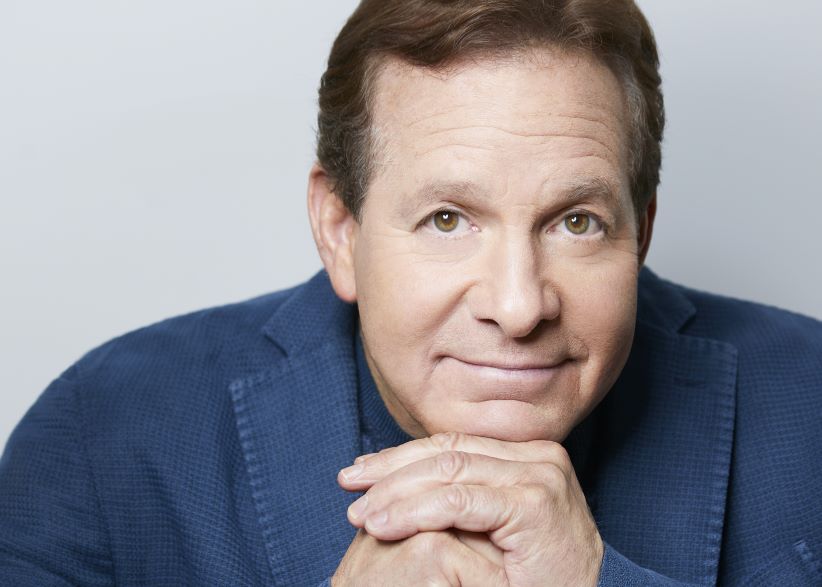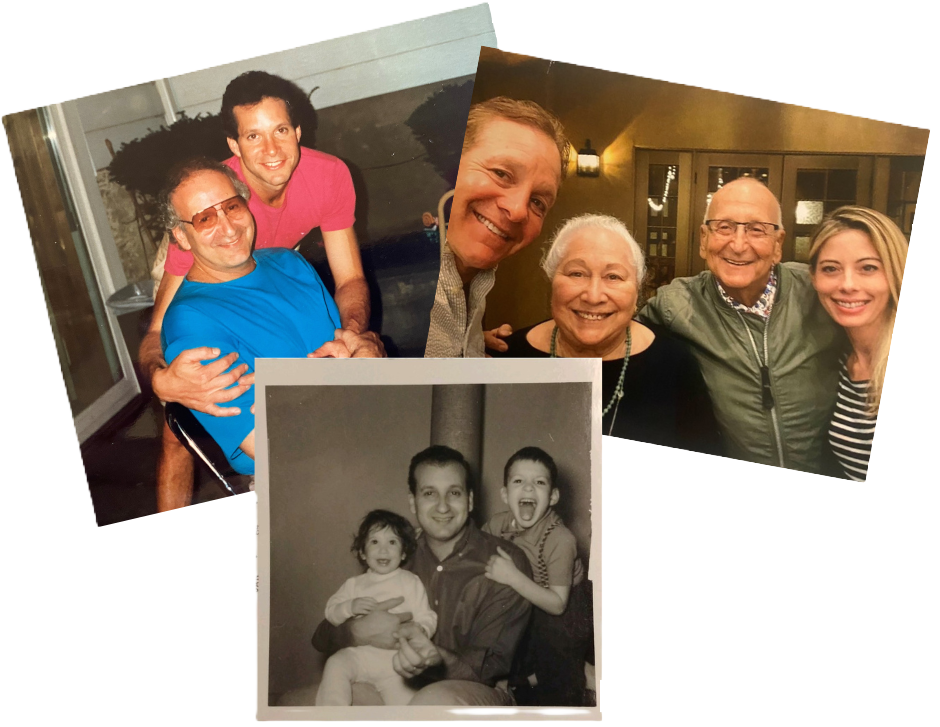
Last updated on December 3rd, 2024 at 03:33 pm
Steve Guttenberg has made audiences laugh and smile with his starring roles in hit comedies such as Police Academy and Three Men and a Baby. In 2019, he took on a new and unexpected role as caregiver to his aging father, Stanley. He would drive hundreds of miles back and forth every week to help Stanley, who died of kidney failure in 2022. Guttenberg recently wrote a book, Time to Thank: Caregiving for My Hero, about the experience, and he recently spoke with NIH MedlinePlus Magazine about his caregiving journey. He hopes to bring attention to caregiving and share empathy with the millions of others facing similar challenges.
You basically dropped everything to help with caregiving for your father. Can you share how your caregiving journey started?
My dad had signs of declining kidney function for years, but we largely ignored them. He felt fine, and we thought he would get better. But things eventually got worse, and his internist (a doctor of internal medicine) said he needed to see a nephrologist (kidney specialist). The nephrologist said Dad’s kidneys were failing and could no longer filter the toxins from his blood. She said he needed to receive kidney dialysis three days a week.
Our family knew it was going to change his life and ours. We were going to have to build our lives around his schedule, change the food he ate, and carefully monitor his fluid intake. It was a shock for all of us. That’s when I started my ritual: Every week I drove 400 miles from Los Angeles to Phoenix to take my dad to four-hour dialysis sessions to clean his blood. I did this drive four days a week—the number four literally became my rhythm of life.
How did all of this impact your family?
The change in lifestyle and decline in my dad’s health were really tough on him and all of us. He had always been the strength of our family and a strong man. He was a real specimen—190 pounds of muscle. He was a U.S. Army Ranger and a New York City police officer who exercised his whole life.
But when a loved one is facing a serious illness and needs your help, you stand up, you get to work, and you do what you have to do. You look for joy and happiness in little things every day so you can carry on. My sister Susan was really the captain of everything we did. She was amazing and selfless. She gave up her job in teaching to take care of our parents. Our mother lives with her.
How did you and your family educate yourselves about your father’s condition and how to help him as caregivers?
We did as much research as we could about kidney failure and dialysis and how it affects the body. We read a lot to learn how to help my dad stay strong and comfortable through everything.
We also asked a lot of questions of his doctors, and we talked to the technicians who managed the dialysis sessions. We got all kinds of tips from them, practical things you need to know, like how to keep his skin safe as he sat in a chair for four hours at a time. We also learned when and what he could eat during dialysis. And because the dialysis technicians had four or five patients [at a time], we learned my dad needed an advocate with him at all times during the treatment so we could get help quickly if something went wrong and he needed medical attention.
Is there anything from your caregiving experience that you especially cherish?
Yes. Every time I would walk into the room in the morning and see him, his eyes would light up with the most authentic emotion I have ever encountered. His eyes would go wide, and his smile was so bright. And he would reach out his hands. I would grab his hands, kiss them, and hold them tight.
How did your caregiving experience impact your relationship with your father and your other family members?
It brought us much closer and made our relationship much deeper. But I would have much preferred to deepen our relationship through a happy experience!

Steve Guttenberg drove from Los Angeles to Phoenix every week to take care of his father, who died of kidney failure. Guttenberg said his father had always been a strong person, so his illness was hard for the family to process.
What is your message to other caregivers or those who may be caregivers in the future?
When someone you love needs you, how can you not help them? When they open their eyes in the morning, make sure they see two loving eyes looking back at them. Make sure they see a loving atmosphere that makes them warm and gives them hope. Make sure they are surrounded in their daily lives with love and care.
You can always make a difference in someone’s life. Think about who you can help, whether it is a friend or a loved one. Give them a call, send a card, or bring flowers. Visit them and come in with a smile, a joke. Touch them physically and emotionally—people need to be touched and cared about.
What does the future hold for you? Are there any professional projects you are working on that you’d like to share with readers?
I’m excited that we have released the audio version of my book about caregiving, Time to Thank: Caregiving for My Hero. I wrote and acted in a wonderful play last year called Tales of the Guttenberg Bible, and I’m in a TV series, High Potential, out this fall on ABC. I’m also starting to film two new movies!
